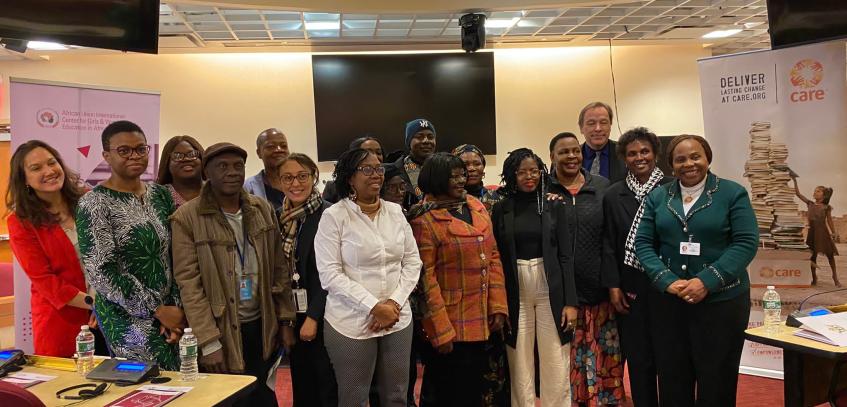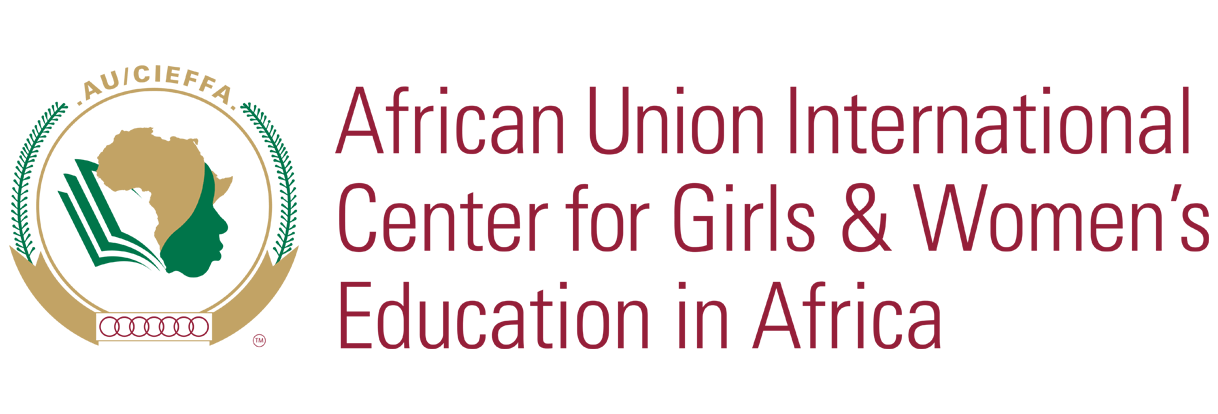Jointly organised by the African Union Center for Girls and Women’s Education in Africa (African Union CIEFFA) and CARE International, with the support of UNGEI, UNESCO IICBA, and GPE, this side event was convened under the theme, “ Accelerating girls and women’s education through inclusive and gender transformative policies and funding”. It was hosted on the margins of the 67th Session of the Commission on the status of Women (CSW), at the AU Permanent Mission to the UN compound in New York, on March 9, 2023. Recognising the need to strengthen efforts across sectors to champion girls’ education within Agenda 2063; the meeting was a platform for key stakeholders present to interrogate evidence of what works in promoting gender responsive education. It was also a space to discuss policies, actions, and resources (including digital resources) that are needed from governments, donors, civil society, young activists, and other stakeholders to implement impactful approaches in advancing gender-responsive education and accelerating girls’ learning and retention on the African continent.
At the core, meaningfully engaging key political actors like ministers of finance, the need for strategic partnerships, inclusivity of the most marginalised girls and women, the necessity to develop strategic resourcing and funding, and efficient financing mechanisms are some of the strong points put on the table during the side event.
The event program, directed by Lorato Modongo, brought together AU Member States,policymakers, experts, donors, youth, and civil society actors at the intersections of gender and education. While opening the ceremony, the representative of the Commissioner of ESTI, Mrs. Simone Yankey, Ag. Coordinator of the African Union CIEFFA, stated, “There is a collective necessity and urgency by multi-stakeholders to expand opportunities for protection and the realisation of girls and women’s rights in Africa. Education in particular, has been singled out as a high impact tool for achieving gender equality.” Among those present was the minister of Women Affairs, Community, Small, and Medium Enterprise Development, Zimbabwe, Honorable Dr. Sithembiso Gladys Nyoni who underlined a number of actions carried out by the Zimbabwean government in favour of girls’ education. Dr. Sithembiso stressed the need for women to get into political positions, “let us fight to be part of the decision-making. As long as we don’t get to the level where the decisions are made, we will continue to talk”.
In the panel discussion, facilitated by Rachel Hartgen, Simone Yankey expounded on the various components of the #AfricaEducatesHer Campaign. Other speakers included; Ellen Chigwanda, Advocacy Advisor – Education and Adolescent Empowerment, CARE, Victoria A. Egbetayo, GPE’s Global Public Policy, Advocacy & Partnerships Lead, and Olaoluwa Abagun from the ATHENA Network and representative from Girls Opportunity Alliance. These speakers all outlined the actions taken by their organisations to accelerate girls and women’s education in Africa in all its facets.
The meeting was graced with two presentations. The presentation of Quentin Wodon painted a picture of the connection between, “Gender inequality, STEM education, and ICT”. Antara Ganguli, Director of UN Girls’ Education Initiative (UNGEI) underlined that, “we need to ensure that once girls access school, they can learn in a safe environment where they and their male counterparts are learning to question gender norms and are allowed to contribute to gender equality in their communities and countries”.
Watch entire session using this link










